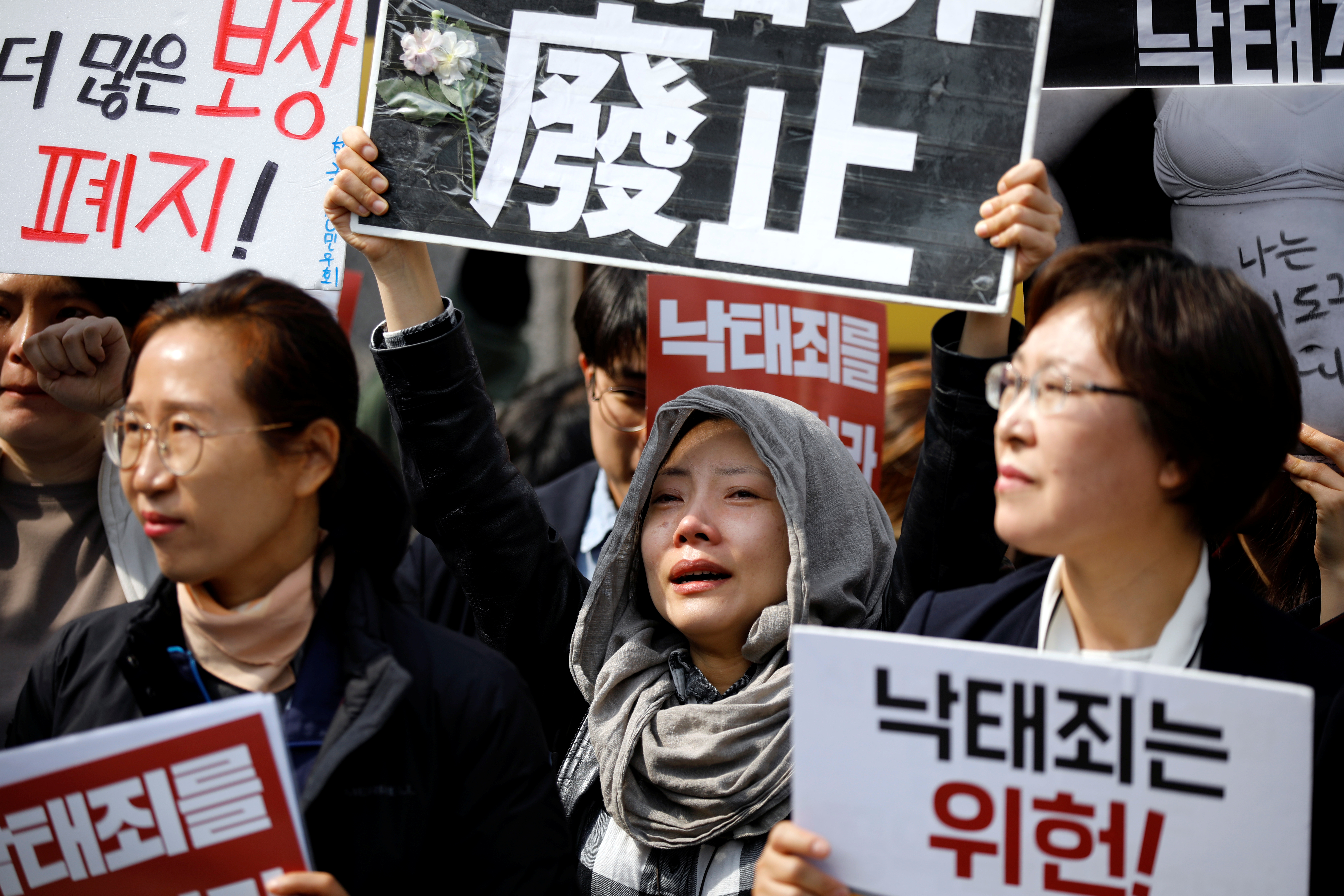South Korea Is Lifting Its 66-Year-Old Ban on Abortions

Credit to Author: Mustika Hapsoro| Date: Fri, 12 Apr 2019 12:59:52 +0000
This article originally appeared on VICE ASIA.
Yesterday, hundreds of protesters from both pro-life and pro-choice groups gathered outside the Constitutional Court in Seoul as they waited for a decision that will change the lives of women in South Korea.
At 2PM, the South Korean court ruled that the country’s abortion ban is unconstitutional and has ordered for the law to be revised by the end of 2020. The ban was introduced in 1953.
“The abortion ban limits women’s rights to pursue their own destinies and violates their rights to health by limiting their access to safe and timely procedures,” the court said in a statement as quoted by The Guardian. “Embryos completely depend on the mother’s body for their survival and development, so it cannot be concluded that they are separate, independent living beings entitled to the right to life.”
While the decision is a victory for pro-choice campaigners, who fought for nearly seven decades to have the ban lifted, the fight is far from over.
While you’re here, watch our 2016 documentary on backstreet abortions in the Philippines:
The current law criminalising abortion will remain effective until it’s revised in 2020. If lawmakers fail to introduce new legislation by the deadline, the ban would be repealed.
Since 1953, abortion has been an illegal practice in the predominantly Christian country. It’s only allowed when the pregnancy puts the woman’s life at risk or is a result of rape and incest. Even then, a woman is required to obtain permission from her spouse to undergo the abortion procedure.
Under the current law, women who undergo illegal abortion face a maximum one-year sentence or a fine of up to two million won (just over £1,300). Meanwhile, doctors who perform illegal abortions can face a prison sentence of up to two years. The enforcement of the law, however, is rare. Though there were as many as 50,000 estimated illegal abortions in 2017 alone, according to a report by the New York Times, only around 80 women and doctors went to trial for their involvement in abortions between 2012 and 2017. Only one of them ended up serving time in prison, while the rest received fines or suspended jail terms.
The law has been brought to court multiple times. The latest ruling was made in 2012 when the court ruled in favour of the current law. The latest push to make amendments to the law came after a doctor – who was prosecuted in 2017 for performing almost 70 abortions – challenged the issue to court.
Although a survey has shown that the public’s attitude towards abortion seems to have shifted over the years, there’s still a lot of resistance from Christian activists groups that also consist of anti-abortion doctors. The groups even run a hotline for people to report clinics and doctors that perform illegal abortions.
South Korea’s president, Moon Jae-in, who is a liberal and a Christian, has not stated clearly if he supports the law. However, in response to the country’s embrace of the #MeToo movement, he has vowed to lead South Korea toward a society where “sexual equality and women’s rights are realised, and the dignity of all people is respected.”
This article originally appeared on VICE ASIA.